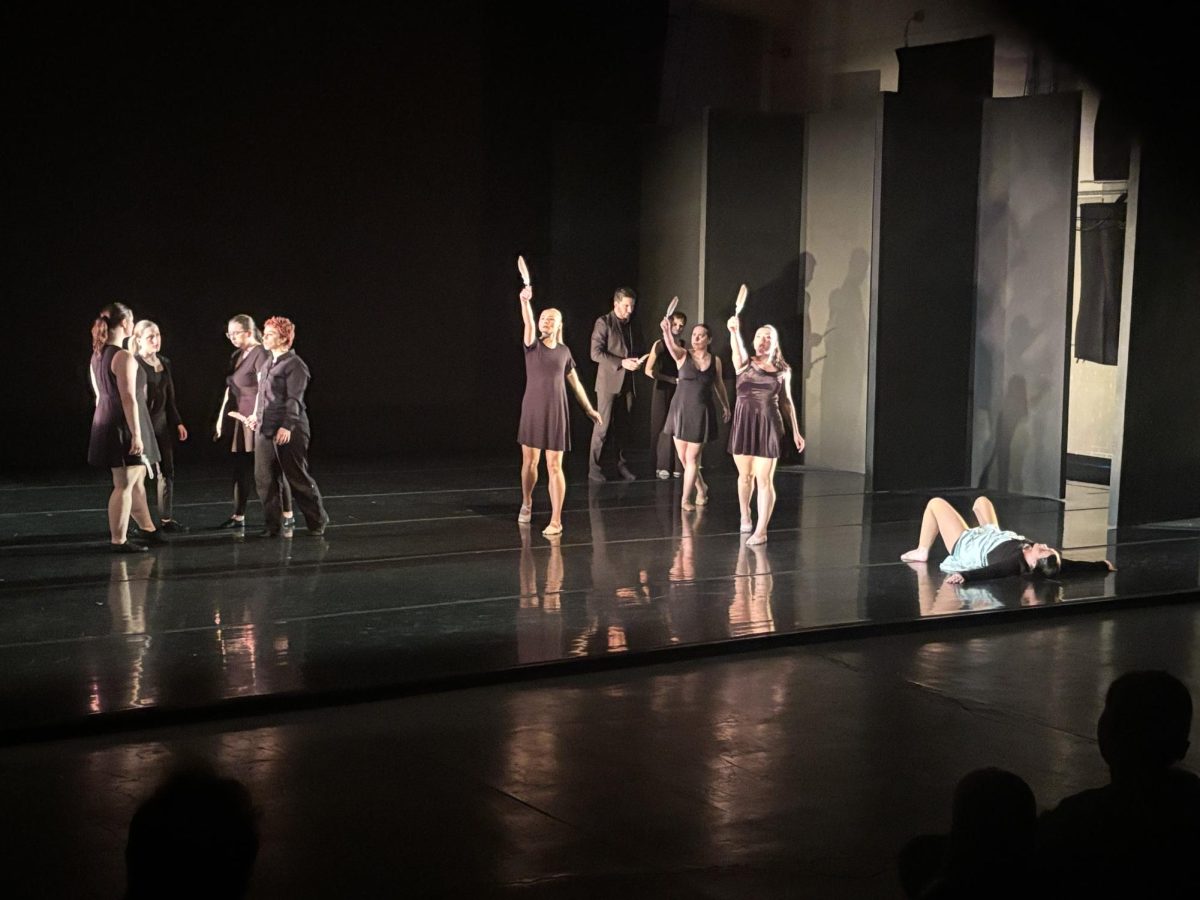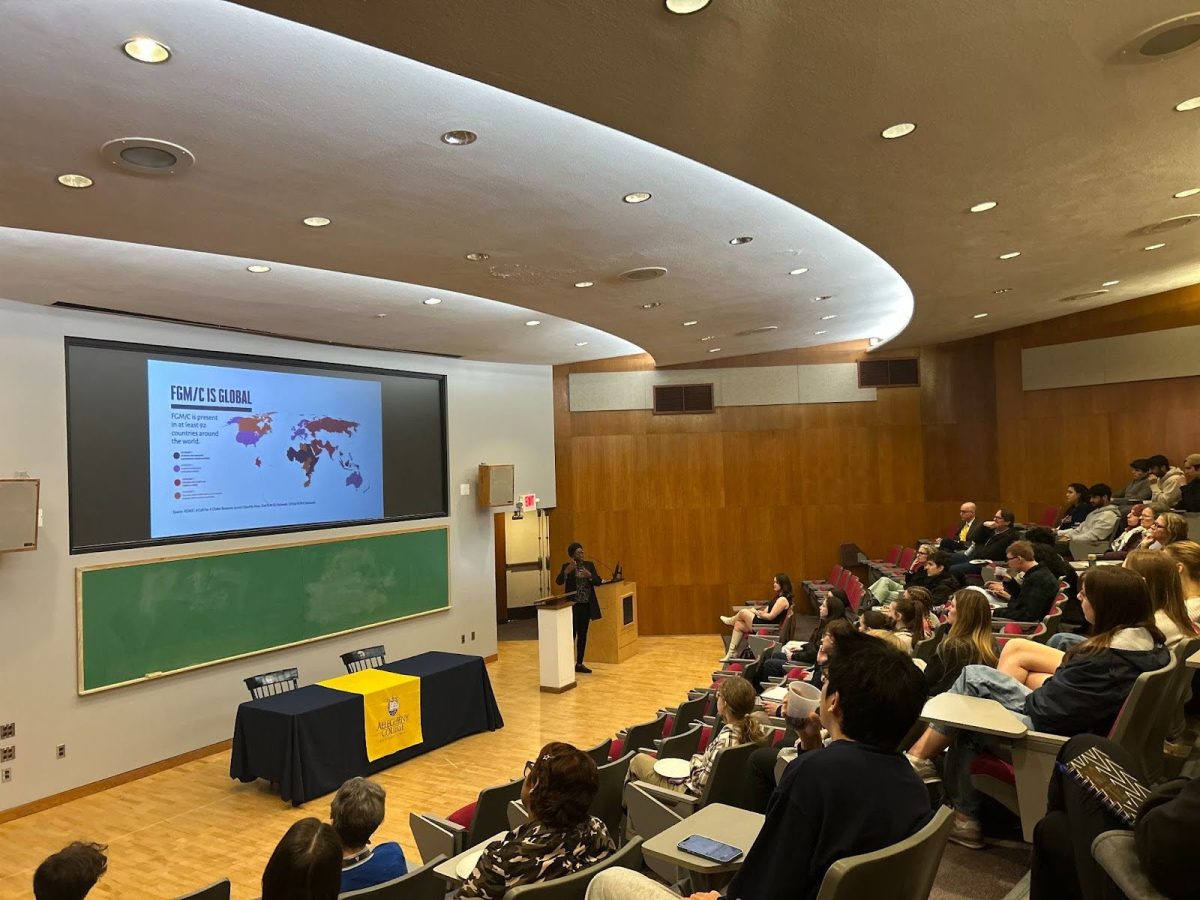“FAG” and “U R GAY”—the slurs scrawled in red across the windshield and driver’s side window of Erin Davies’ car was not the welcome she expected when she walked to her car after .
The hate crime, prompted by a rainbow sticker on her windshield, elicited a natural reaction from Davies at first.
“It was humiliating and shocking, and I wanted to erase it immediately,” said Davies. “We don’t want to create a bond with a word like that. We just want to completely disconnect from it and erase it.”
But Davies overcame the insults by sharing them with the public. She ended up embarking on a 58-day-long journey across the country in that very car in an experiment to evaluate people’s different reactions to homophobic hate crimes.
Students affirmed that had they been in Davies’ position, they would have been reluctant to drive a car covered in graffiti.
“If this would’ve happened to me, I would have been angry,” said Jenny Lauer, ’12.
At first, Davies planned to remove the graffiti from her car. Her insurance company gave her a five day waiting period for a quote.
“I refused to be forced to drive my car around like this for five days,” Davies said. “There was ‘fag’ written next to my face.”
The company agreed to provide Davies with a rental car until her car could be repaired.
“Had [the company] said, ‘Oh, sure, we’ll come out today to get your car fixed,’ I would have fixed it 100 percent,” she said. “I never would have done what I did.”
During the two days Davies spent driving a rental car, neighbors she’d never spoken to stopped her in traffic to talk about her defaced car. Davies realized that her car was opening up a dialogue about vandalism. It was then that she decided to keep the graffiti.
“I thought that I should drive the car to school,” she said, referring to the third day after the incident. “I don’t know why I thought that. It was a gut feeling, and I just listened to it.”
Davies’ choice to drive her spray-painted car elicited strong reactions from the public.
“The graffiti really struck a nerve for people,” Davies said. “They had to feel the same feeling I felt when I first saw my car. Instead of carrying that feeling around with me, I externalized it and everyone who saw my car—that day and throughout the year—ended up having to share that experience and process it.”
Externalizing her personal situation became Davies’ way of bringing attention to crimes that, as she learned, had often gone unaddressed.
Before her firsthand experience, Davies had no idea how often hate crimes occurred. She said that every time she speaks at a school, at least one person will approach her to talk about a similar experience. For instance, during her visit to Meadville she learned about the recent homophobic slur that was found on the door of a student’s dorm room.
“It’s been eye-opening to see how often vandalism like this happens and how people usually remove it,” Davies said.
Had Davies removed the graffiti from her Volkswagen right away, she claims she would not have been able to fully recover from the incident.
“Even though I felt fine being gay and I wasn’t in the closet or anything, I think deep down I would have felt some shame associated with removing [the slurs] off my car and internalizing my reaction,” Davies said. “But I didn’t remove the graffiti until a year later when I was ready.”
The boldness Davies’ exhibited in driving her vandalized car was noticed by Volkswagen of America Inc., who wanted to sponser her. When Davies unveiled her new car, she showed for over ten news teams at her college a flashy, rainbow Volkswagen Bug that proudly displays the name “Fagbug.”




